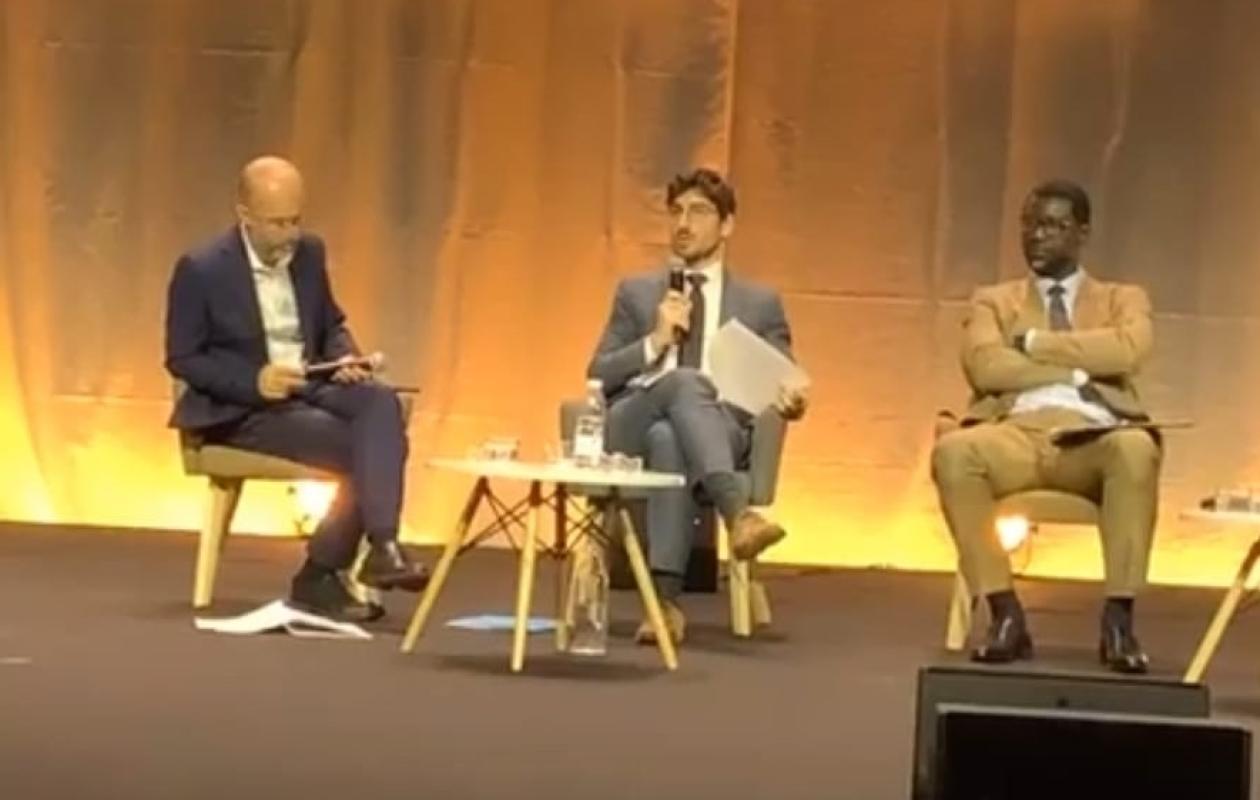
ESS : Le Sénégal expose son modèle et sa vision au GSEF de Bordeaux
The Minister of Social and Solidarity Economy and Microfinance, Alioune Dione, presented Senegal's ambitious roadmap for the Social and Solidarity Economy (SSE) at the Global Social Economy Forum (GSEF 2025), held in Bordeaux. This global forum brings together heads of state and international organizations to strengthen the SSE within the global social contract.
Minister Dione immediately acknowledged the delay by states in promoting the social and solidarity economy (SSE), a leadership role historically held by local authorities and civil society. However, he affirmed the government's strong political will to make the SSE a lever for economic sovereignty and a catalyst for social integration, aligned with the United Nations Sustainable Development Goals (SDGs).
I. International and Continental Dynamics
Diplomacy and Cooperation for Development
Senegal is actively engaged on the international stage to consolidate the recognition of the social and solidarity economy (SSE). The planned actions are numerous:
Active diplomatic support for UN and African Union (AU) initiatives and resolutions promoting the social and solidarity economy.
Participation in key events, including two side events at the Doha Summit and the Seville Summit on Financing for Development.
Strengthening South-South Cooperation for the sharing of experiences in the social and solidarity economy.
In terms of cooperation, the government plans to present social and solidarity economy development projects to Technical and Financial Partners (TFPs) and to develop public policies that promote solidarity production, pooling and social innovation.
At the African level, Senegal is fully aligned with the African Union's Ten-Year Strategy (2023-2032) for the Social and Solidarity Economy. The Minister reiterated the country's participation in the FORAESS (African Forum on the Social and Solidarity Economy) in Yaoundé (2024) and its commitment to attend the one in Brazzaville (2026).
The country is increasing its networking and benchmarking activities, such as hosting the Republic of Congo and participating in forums in Kenya, Ivory Coast and Morocco.
Political vision and national framework
Senegal places the social and solidarity economy at the heart of its major public policies:
Agenda 2050 (resilient and equitable development).
National Development Strategy 2025-2029 (the social and solidarity economy as an engine of economic transformation).
Sectoral Policy Letter (LPS 2025-2029), which links microfinance and the social and solidarity economy.
The objective is clear: to make the social and solidarity economy a lever for economic sovereignty, the creation of decent jobs and the reduction of inequalities.
The operational pillars
National policy is based on concrete mechanisms:
Solidarity Productive Cooperatives (CPS): They constitute the Senegalese model of territorial anchoring aimed at creating local and sustainable jobs, structuring collective value chains and facilitating market access for producers and artisans.
The Targeted Financing Strategy (TFS): A structuring instrument for the banking and sustainable access to capital of Social and Solidarity Economy (SSE) Organizations.
Social and Solidarity Economy (SSE) Incubators: Located in territorial hubs, they are catalysts for social innovation and economic empowerment, particularly for young people and women.
Institutional resources and means
Implementation is led by the MMEES (Ministry of Social and Solidarity Economy and Microfinance) and relies on several financing and regulatory instruments:
Regulation: Continued promotion of the Orientation Law on the ESS and issuance of ESS accreditations (566 to date) to strengthen governance and traceability.
Funding: The Economic Support Fund
social (FAESS), the Support Programme for SSE actors (PROGRESS), the National Microfinance Fund and the FDMI (inclusive Islamic finance).
Evaluation: Structuring underway of the National Observatory of the SSE to measure the impact of the SSE on Senegal's GDP from 2026.
Minister Dione also mentioned the expectation of funding for a Delivery Unit to give a boost to the sector, as well as the partnership with the ILO (International Labour Office) on the FORC'ESS project (Formalization of Community Organisations of Social and Solidarity Economy).
In conclusion, Senegal aims to build a structured and competitive SSE, positioning itself as the African reference for the endogenous and sustainable SSE model by combining economic sovereignty, social justice and ecological transition.
Commentaires (8)
il est temps d'apprendre à nos représentants la bonne tenu et le comportement en public pour une personnalté
Participer à la Discussion
Règles de la communauté :
💡 Astuce : Utilisez des emojis depuis votre téléphone ou le module emoji ci-dessous. Cliquez sur GIF pour ajouter un GIF animé. Collez un lien X/Twitter ou TikTok pour l'afficher automatiquement.